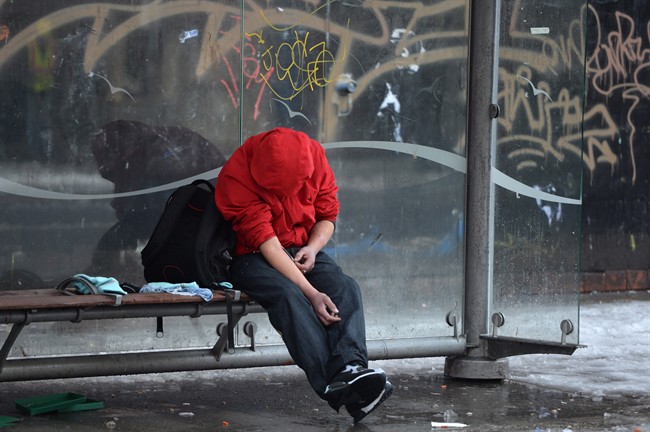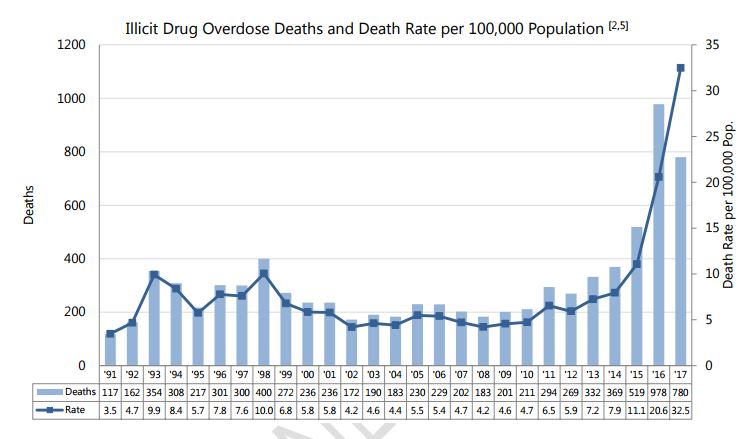The BC Coroners Service says it’s taking new steps to try and identify trends – and possible solutions — to the opioid overdose crisis.

The service’s ambitious new unintentional drug overdose protocol will see coroners fill out an 11-page report for each suspected overdose death.
Speaking with CKNW’s Steele & Drex, Chief Coroner Lisa Lapointe said the initiative was spurred by the need to better understand who is dying, where, and under what circumstances.
“Information like, for example, if a person died inside, was it their residence [or] was it another person’s residence? What’s their occupation? What’s their medical history? Do they have any mental health history? What were their prescriptions?”
Lapointe said collecting this type of information will give officials better tools to understand how to address the crisis.
WATCH: Alarming increase in overdose deaths in the Okanagan

For example, she said, data collection has revealed that nine out of 10 overdose victims are dying indoors in a private residence.
“And what’s happening is that people are either using alone or using in a residence where others aren’t aware that they’ve overdosed,” she said.
“So that stigma around not wanting anyone to know that I’m using drugs or not wanting anyone to be aware that I might be in trouble, it’s really problematic.”
The latest numbers from the Coroners Service found there were 111 drug-related deaths in B.C. in June, about 3.7 people per day.
Seven-hundred-and-eighty people have lost their lives to a drug overdose in 2017 — nearly double the number who had died by this time last year.
One of the issues that the Coroners Service and the Centre for Disease Control (CDC) are looking to better understand is the connection between prescription drugs and later addiction.
She said health workers know some people move to illicit drugs after being on prescription, but not how many.
Similarly, officials want to get better data on the number of people who have been removed from prescriptions, only to seek out illicit drugs to help manage continuing pain, Lapointe said.
WATCH: ‘You can not solve a problem by ignoring it’: Grand Chief Doug Kelly on B.C.’s overdose crisis

Lapointe said she’s also hopeful better data collection can help develop a clearer picture of the national scope of the crisis.
That’s been a problem to this point, with provincial jurisdictions collecting data under different regulations.
Lapointe said chief coroners met last December to develop a set of common definitions that will allow information sharing and publication of numbers at a national level.
“So we will be able to start to commonly report what we’re finding… we hope that within a year we’ll have a much better idea of the national picture.”
Lapoint admits the new regulations will mean a heavier workload for an already taxed Coroners Service which has been slammed with a tripling of overdose deaths in recent years.
But she said the effort, which includes meeting with grieving families of overdose victims, will be worth if it delivers results.
“It’s very emotional work and it takes special people to do it. But the coroners are very special people in my opinion.”
- Buzz kill? Gen Z less interested in coffee than older Canadians, survey shows
- ‘She gets to be 10’: Ontario child’s heart donated to girl the same age
- Canada updating sperm donor screening criteria for men who have sex with men
- Bird flu risk to humans an ‘enormous concern,’ WHO says. Here’s what to know









Comments